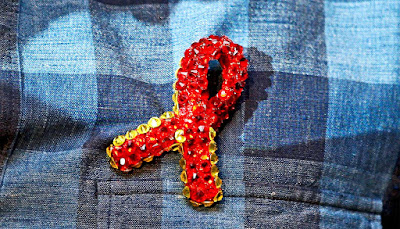NEW TYPE OF HIV VACCINE WORKS IN MONKEYS
A brand-new kind of inoculation can significantly improve and sustain protection from HIV in apes, scientists record.
The searchings for carry wide ramifications for immunologists pursuing vaccines for the coronavirus and better vaccines for various other illness, says Bali Pulendran, teacher of pathology and of microbiology and immunology at Stanford College and co-senior writer of the paper in Nature Medication. kemudahan dalam bermain slot online
"DESPITE OVER THREE DECADES OF INTENSE RESEARCH, NO PREVENTIVE HIV VACCINE IS YET IN SIGHT."
The key to the new vaccine's considerably improved protection from viral infection is its ability—unlike nearly all vaccines currently in use—to awaken a component of the body immune system that most present vaccines leave resting.
"Most vaccines aim at promoting lotion resistance by increasing antibodies to the getting into pathogen," says Pulendran, describing antibodies distributing in blood.
"This injection also increased mobile resistance, the mustering of an military of immune cells that chase after down cells contaminated by the pathogen. We produced a harmony in between these 2 kinds of immune task."
Some 38 million individuals worldwide are dealing with AIDS, the once undoubtedly deadly illness HIV causes. While a blend of antiviral representatives can hold HIV in inspect, it proceeds to contaminate 1.7 million individuals yearly and is the reason for some 770,000 fatalities each year.
FIGHTING WITH BOTH ARMS UNTIED
"Despite over 3 years of extreme research, no precautionary HIV injection is yet visible," Pulendran says. Very early wishes for such a injection, based upon a test in Thailand whose outcomes were released in 2012, were dashed simply months back when a bigger test of the same injection in Southern Africa quit after a initial evaluation indicated that it hardly functioned.
Vaccines are designed to excite the flexible body immune system, which reacts by producing cells and molecular weaponry that target a particular pathogen, as opposed to shooting willy-nilly at anything that moves.
The flexible immune reaction is composed of 2 arms: lotion resistance, where B cells secrete antibodies that can glom into and reduce the effects of a microbial pathogen; and mobile resistance, where awesome T cells wander through the body checking cells for indications of infections and, after finding them, ruining the cells that nurture them.
But most vaccines press the flexible body immune system to combat off infections with among those arms connected behind its back.
"All licensed vaccines to this day work by inducing antibodies that reduce the effects of an infection. But inducing and preserving a high enough degree of neutralizing antibodies versus HIV is a requiring job," Pulendran says. "We've revealed that by promoting the mobile equip of the body immune system, you can obtain more powerful protection versus HIV despite a lot lower degrees of neutralizing antibodies."
In the new study, the scientists utilized a two-armed approach tailored towards promoting both lotion and mobile resistance. They inoculated 3 teams of 15 rhesus macaques over a 40-week duration.
The first team received several consecutive inoculations of Env, a healthy protein on the virus's external surface that is known to promote antibody manufacturing, plus an adjuvant, a chemical mix often used in vaccines to beef up overall immune reaction.
Scientists similarly inoculated the second team but gave them additional shots of 3 various kinds of infections, each which scientists modified to be contagious but not harmful. Each modified infection included an included gene for a viral healthy protein, Gag, that is known to promote mobile resistance.
A 3rd team, the control team, received shots containing just the adjuvant.



